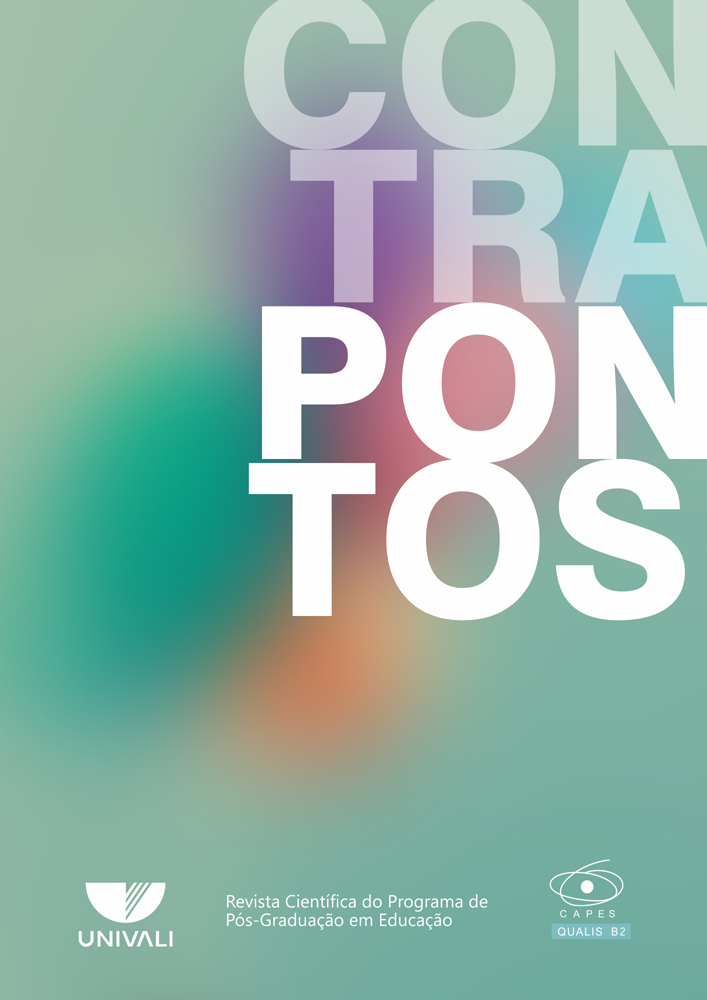COMPORTAMIENTOS ESTRATÉGICOS PARA PRESERVAR LOS ESTUDIOS DEL CURRÍCULO COMO UN ÁREA
DOI:
https://doi.org/10.14210/contrapontos.v18n2.p02-17Palabras clave:
Estudios del currículo, Historia del currículo, Educación doctoral, Teoría del currículo.Resumen
En los últimos diez años, los profesores del área de estudios del currículo presenciaron la reducción de sus programas. En medio a estos desafíos, muchos de los involucrados en la enseñanza del tema, están buscando un realineamiento para mantener los diálogos complicados, con riesgo de perder todos sus programas. El presente trabajo explora los contextos históricos y organizacionales para buscar trayectorias estratégicas para que los estudios del currículo se conecten en nuevas formas. Nuestro artículo no pretende ser un tratado sobre la muerte de los programas de doctorado en el área de estudio del currículo, pero si una evaluación de los cambios drásticos que están sucediendo en el área. Las preocupaciones en nuestro trabajo están contextualizadas en la naturaleza cambiante de la educación y de los programas de doctorado. Argumentamos que los estudios del currículo no se encajan en los nuevos modelos de trabajos de posgrado, pues buscan su identidad, se distancian de las aplicaciones más prácticas de la teoría para intentar reparar el vacío que divide las diferentes perspectivas del área y su papel en el trabajo sobre el currículo. Históricamente, el currículo se ha prestado a un trabajo crítico y unificador en la educación para entender la vida cotidiana de los educadores; dar soporte al proceso de enseñanza reflexiva y mejorar el valor de la educación como política. Con esto en mente, consideremos que, para que el área de estudios del currículo sobreviva, necesitamos encontrar nuevas formas de conectar práctica y política.Descargas
Publicado
2018-07-04
Número
Sección
Artículos
Licencia
Ao encaminhar textos à revista CONTRAPONTOS, o autor estará cedendo integralmente seus direitos autorais da obra à publicação. O trabalho publicado é considerado colaboração e, portanto, o autor não receberá qualquer remuneração para tal, bem como nada lhe será cobrado em troca para a publicação. Os textos são de responsabilidade de seus autores. Citações e transcrições são permitidas mediante menção das fontes.

Este obra está licenciado com uma Licença Creative Commons Atribuição 4.0 Internacional.

